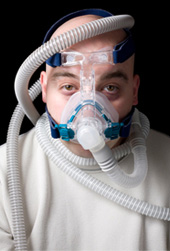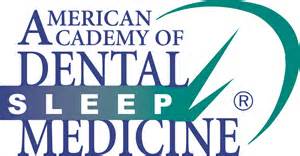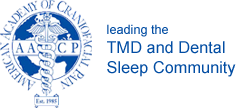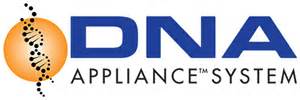Snoring and Sleep Apnea
At The Washington TMJ & Sleep Therapy Center, we believe that the exploration of innovative treatments for sleep disorders is essential to the growth of the field. Our participation in continuing education keeps us on forefront of sleep-related healthcare and allows us to offer our patients the latest innovated treatments for their disorders.
Dr. Piontkowski attended the Maryland State Sleep Association of Practitioners meeting to learn the latest techniques with sleep apnea, snoring, upper airway resistance, and general sleep disorders. Dr. Piontkowski will be attending the American Academy of Dental Sleep Medicine in June to meet with national experts in sleep medicine and share ideas to resolve sleep related health issues that nearly 25 percent of the adult population in America suffers from.
If you or your loved one may have problems with sleeping, feeling refreshed upon waking, or stop breathing while asleep start by calling our office at (301) 839-0055 or (301) 652-3444 to schedule an appointment. Our doctors are specialized in the treatment of dental sleep medicine and trained in the use of oral devices to help with sleep disorders, as well as TMJ dysfunction, and complex dental problems. At The Washington TMJ & Sleep Therapy Center in Bethesda and National Harbor, Maryland, we have the answers to your questions. These types of problems will not resolve themselves and can get worse with time. If you are ready to find solutions to the issues that constantly disrupt and control your life, request an appointment today and get your life back!
Are you or a loved one suffering from a sleep breathing disorder?
Snoring and medically diagnosed sleep apnea can stem from a variety of causes, but the results are always as disruptive for the sufferer and nearly as disturbing and frightening for the sleep apnea sufferer’s family members.
What is Obstructive Sleep Apnea?
Snoring and obstructive sleep apnea (OSA) are both breathing disorders that occur during sleep due to narrowing or total closure of the airway. Snoring is a noise created by the partial closure of the airway and may often be no more problematic than the noise itself. However, consistent, loud, heavy snoring has been linked to medical disorders such as high blood pressure. OSA is a serious condition; the airway totally closes and breathing stops many times during the night, significantly reducing oxygen levels in the body, disrupting sleep, and causing the patient to wake up gasping for air. In varying degrees, this can result in excessive daytime sleepiness, irregular heartbeat, acid reflux, depression, and/or high blood pressure which can lead to stroke or heart attack. Because the limited oxygen levels in the body results in a change in blood chemistry, medications being prescribed for high blood pressure or acid reflux, for example, may not be effective. The medications prescribed are only treating the symptom, not the cause, which could be sleep apnea.
If you think you may have sleep apnea, a Sleep Study or Polysomnogram (PSG) will confirm a diagnosis. Diagnosis should be done at an accredited sleep center which will require a referral from your physician.
Treatments Options
For Snoring and Mild to Moderate Obstructive Sleep Apnea
The diagram above illustrates how an oral appliance when worn during sleep opens the airway by positioning the jaw forward.
Oral Appliance Therapy is recommended for those with mild to moderate OSA and snoring who prefer to wear an oral appliances to Continuous Positive Airway Pressure (CPAP), or who do not respond or fail treatment attempts with CPAP, or are not appropriate candidates for CPAP. Many individuals report fewer sleep interruptions, more restful nights, and greatly diminished daytime fatigue. In addition, family members reported improved sleep when their bed partners are less likely to awaken suddenly, snore, or sleep fitfully. We are pleased that numerous studies have documented effectiveness of oral appliance therapy as an alternative to nighttime oxygen and surgery for some of our patients.
How Does Oral Appliance Therapy Work?
At The Washington TMJ & Sleep Therapy Center, our treatments include the latest in FDA-approved oral appliances to keep the airway unobstructed during sleep. We are skilled in fitting and maintaining a wide variety of oral devices including:
How Do You Track the Effectiveness of Oral Appliance Therapy?
We provide our patients with an at-home sleep test once an appliance has been provided to help determine the effectiveness of the treatment. This small device records your body’s level of snoring and sleep apnea with the oral appliance in place for a period of one or two nights. By comparing the initial baseline study with this follow-up study, we are able to determine the improvement and monitor treatment effectiveness.
Home Sleep Testing Instructional Video
This device is simple and easy to use and our team will show you how to use the device at home. An instructional video is also available to watch in the office or you may watch it by clicking on the link above.
For Moderate to Severe Obstructive Sleep Apnea
Positive Airway Pressure (PAP, CPAP, BiPAP, VPAP) is considered the "gold standard" by physicians and is recommended for the treatment of moderate to severe sleep apnea. However, due to the many side effects associated with using the CPAP, patient compliance is low (around 50%). This can be very dangerous, and lead to increased risk of heart attack, stroke, high blood pressure, diabetes, GERD (heartburn), headaches, memory problems, and depression, as well as putting their work and social lives at risk. If patients have tried and failed using CPAP, they should be offered treatment with an oral appliance.
How Does CPAP Work?
This machine pushes air down a tube that goes to a mask attached to your face. This air pressure goes into the nose, then down the back of the throat. This air pressure keeps the airway open at night so that you can breathe freely.
Reported CPAP Side Effects Include:
- Mask allergy
- Straps causing blisters and pain
- Claustrophobia
- Sore throat
- Occlusion changes
- TMJ
- Facial structural changes
- Periodic leg movements (PLM)
- Sleep partner complaints
- More arousals
- Travel inconvenience
Looking for An Alternative Treatment to CPAP?
If you have been diagnosed with sleep apnea, are unable to tolerate using a CPAP machine, oral appliance therapies may be your answer. Surgery is not a recommended form of treatment by the American Academy of Sleep Medicine for the treatment of obstructive sleep apnea, due to very low published success rates. Please call us at 301-839-0055 to make an appointment.











